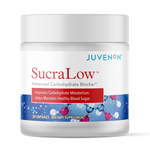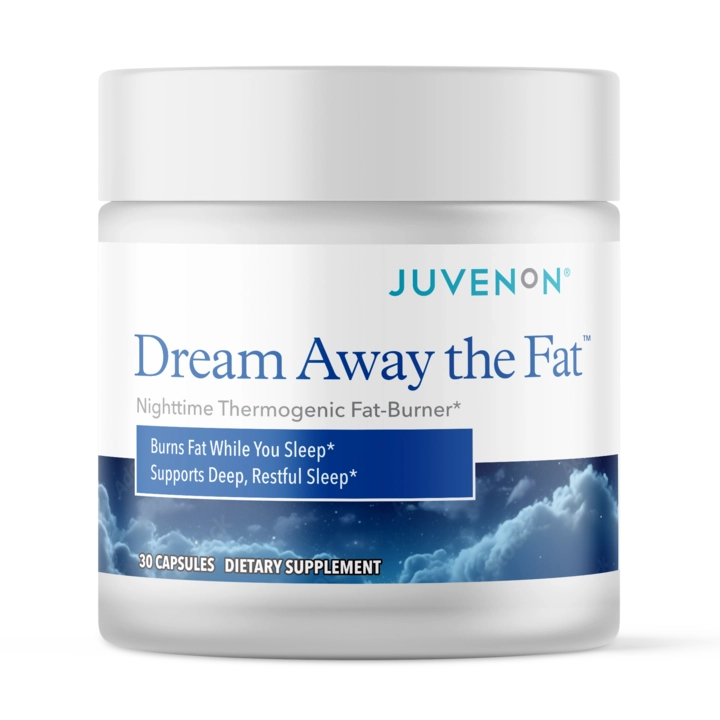Testosterone, the king of male hormones, plays a crucial role in physical and mental well-being in men. It fuels muscles, sex drive, energy levels, and even mood. Testosterone also plays a part in women's health, contributing to bone strength, lean muscle mass, overall well-being, and energy levels. It also significantly impacts sexual desire and satisfaction. While testosterone is often associated with men, women produce it as well, albeit in much smaller amounts —10 to 20 times less than males.

But with so much information swirling around this hormone, particularly regarding total and free testosterone in men, some might be left wondering: what exactly is the difference, and how does it affect my performance?
This blog aims to explain everything about total and free testosterone — what each are, how they differ, and the factors that influence them. Additionally, this guide will explore natural ways to boost testosterone levels for a host of benefits like better physical performance and overall well-being.
Total Testosterone and Free Testosterone Explained
Testoosterone is a hormone produced in the testes that is responsible for everyday functions in men. It plays an important role in male characteristics like muscle mass, bone density, fat distribution, facial and body hair growth, sperm production, sex drive and even mood.
Testosterone exists in the body in two forms: total and free.
Total Testosterone
Total testosterone refers to the entire amount of testosterone circulating in the bloodstream. Total testosterone is made up bound and unbound. Unbound testosterone is commonly referred to as “free” testosterone:
- Bound testosterone: Most of total testosterone, 95%-98% is bound testosterone that is attached to carrier proteins, primarily sex hormone-binding globulin (SHBG). These proteins act like taxis, transporting testosterone throughout the body but keeping it inactive until it’s needed.
- Unbound “free” testosterone (~2-5%): About 2%-5% of testosterone remains unbound from proteins, allowing it to readily enter cells and play its role in bodily functions.
Free and Bioavailable Testosterone
While free testosterone represents the "active" form of testosterone, some may be loosely bound to another protein called “albumin.” Albumin-bound testosterone is less active but can quickly become free.
Some people have normal total testosterone levels but low free or bioavailable testosterone levels. This can lead to symptoms of low testosterone, even though the overall number looks okay. Therefore, some doctors consider bioavailable testosterone, which includes free testosterone and loosely bound testosterone, as a more accurate measure of active testosterone. It's considered a better way to measure how much testosterone is actually available to do its job in the body.
Methods to Increase Free Testosterone Levels
While testerone naturally declines with age, there are several natural ways to help boost testosterone levels, and potentially improve physical and mental health:
- Maintain a healthy weight: Excess body fat, especially around the midsection, can interfere with testosterone production. Losing excess body fat can significantly improve testosterone levels.
- Prioritize sleep:Adequate sleep is vital for hormone regulation, including testosterone production. Aim for 7-8 hours of quality sleep each night.
- Manage stress: Chronic stress can elevate cortisol, a hormone that can suppress testosterone. Practice relaxation techniques like yoga, meditation, or deep breathing..
- Engage in regular exercise: Strength training is particularly effective for boosting testosterone. Focus on compound exercises that work multiple muscle groups.
- Embrace a balanced diet: A diet rich in protein, healthy fats, and essential vitamins and minerals supports overall health and hormone balance. Consume a nutrient-rich diet with adequate protein, healthy fats, and essential vitamins.
- Consider Vitamin D supplementation: Sufficient vitamin D levels are essential for overall health and may influence testosterone production. If deficient, consult your doctor about Vitamin D supplementation.
The Difference Between Free and Total Testosterone
The key difference between free and total testosterone lies in their "availability." Total testosterone represents the total amount, both active and inactive.
Free testosterone, however, signifies the readily available portion that can directly impact the body. While changes in total testosterone often reflect changes in free testosterone, it's not always a perfect reflection. Factors like SHBG levels can influence how much free testosterone is available, even with a stable total testosterone level.
Factors Affecting Testosterone Levels
Several factors influence your testosterone levels, including:
- Age: Testosterone levels naturally decline with age, typically starting around 30 at a rate of about 1% per year.
- Genetics: Genes play a significant role in determining testosterone production capacity.
- Weight: Obesity can decrease testosterone production, while weight loss can often improve it.
- Diet: A balanced diet rich in essential nutrients, including healthy fats, protein, and certain vitamins like Vitamin D, supports healthy testosterone levels.
- Sleep: Adequate sleep is crucial for testosterone production. Aim for 7-8 hours of quality sleep nightly.
- Stress: Chronic stress can significantly decrease testosterone levels. Practice relaxation techniques like yoga, meditation, or deep breathing.
- Exercise: Regular exercise, particularly strength training, can boost testosterone production.
Boost Your Testosterone Levels Naturally with Alpha Gold Male
While total testosterone measures the overall amount of the hormone, free and bioavailable testosterone provide a more accurate picture of the portion actively influencing bodily functions.
Declining testosterone is a growing concern for men of all ages, leading to symptoms like fatigue, decreased libido, and muscle loss, and can significantly impact quality of life.
While traditional treatments exist, Juvenon’s Alpha Gold Male offers a natural alternative to boost testosterone levels. The doctor-approved supplement has ingredients that have been scientifically verified to not only boost total testosterone levels, but to lower the stress hormone cortisol, enhance libido and ampify physical performance.
Click here to learm more about Alpha Gold Male and all the benefits that come with naturally enhancing testosterone levels.
FAQs About Free Testosterone vs Total
What is more important to men’s health: free testosterone or total?
While free testosterone is crucial, total testosterone provides context. However, if SHBG levels are abnormal, a free testosterone test might be more informative on your active testosterone levels.
What if total testosterone is normal but free is low?
This could indicate high SHBG levels, binding more testosterone and leaving less free. This protein binds to testosterone, making it unavailable for the body to use. Even though your total testosterone might be within the normal range, the amount of free, active testosterone is reduced. This can lead to symptoms of low testosterone despite normal total levels.
Is free testosterone a good indicator?
Free testosterone is generally considered a more accurate indicator of your body's ability to use testosterone. Since it's the unbound form, it's readily available to interact with tissues and produce its effects. However, it's essential to consider it in conjunction with total testosterone and SHBG levels for a complete picture.
What happens if free testosterone is high?
High free testosterone levels can lead to several potential issues, including:
- Increased risk of prostate problems: Elevated testosterone can stimulate prostate growth, potentially leading to benign prostatic hyperplasia (BPH) or prostate cancer.
- Aggression and irritability: High testosterone levels have been linked to increased aggression and mood swings.
- Sleep disturbances: Excessive testosterone can disrupt sleep patterns.
- Heart problems: Some studies suggest a potential link between high testosterone and increased heart disease risk.
It's important to note that these are potential risks, and individual responses can vary. If you have concerns about high free testosterone, consult with a healthcare professional.
What is the difference between free T and total T?
Free testosterone is the portion of testosterone that is not bound to proteins and is actively available to the body's tissues. It represents the biologically active form of the hormone.
Total testosterone is the sum of both free and bound testosterone. It includes the entire amount of the hormone circulating in the bloodstream, regardless of its availability for use.






















